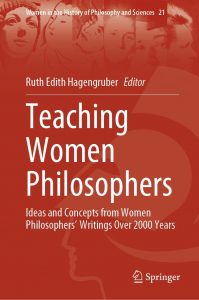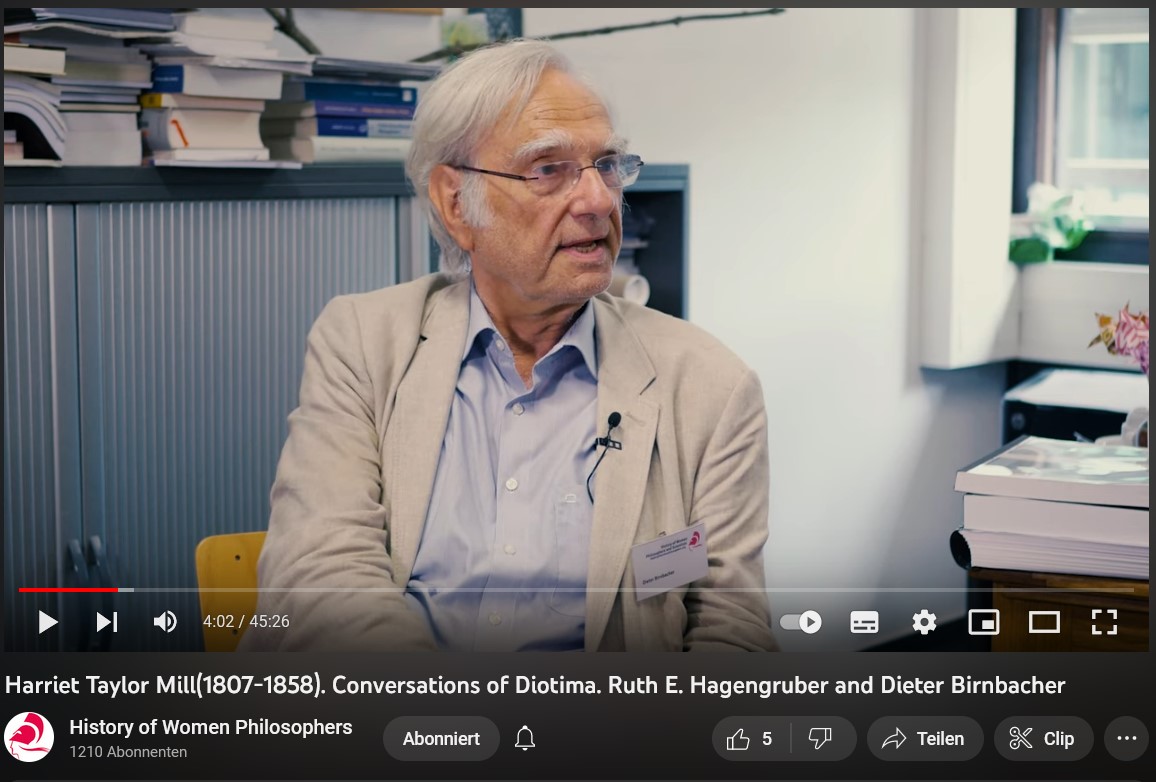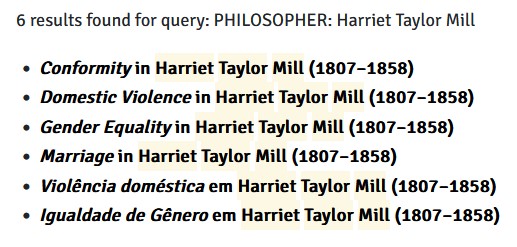 Have you seen the new Springer volume “Teaching Women Philosophers”? In his chapter, Dieter Birnbacher (Heinrich Heine University Düsseldorf) analyzes the work “Enfranchisement of Women”, which was published in 1851 under the name of John Stuart Mills, but is undoubtedly attributed to Harriet Taylor Mill as the author…”:
Have you seen the new Springer volume “Teaching Women Philosophers”? In his chapter, Dieter Birnbacher (Heinrich Heine University Düsseldorf) analyzes the work “Enfranchisement of Women”, which was published in 1851 under the name of John Stuart Mills, but is undoubtedly attributed to Harriet Taylor Mill as the author…”:
Among women philosophers, Harriet Taylor Mill belongs to those who are more well-known as inspirers of great thinkers than as authors of philosophical works in their own right. Both her influence on the thought of her partner, husband and close collaborator John Stuart Mill, and the extent to which she contributed to the writing of the works published under his name, are a matter of controversy. However, the work of which we are fairly certain that its author is Harriet Taylor without qualification is the essay Enfranchisement of Women published in 1851 under John Stuart Mill’s name. This essay is made the subject of a close analysis. It is made clear that Taylor, not unlike her husband in his more controversial essays, makes use of a number of strategies to present her position in a light that makes as acceptable as possible to readers who instinctively react to her message with reservations, for example by aligning gender equality with other reforms instituted in her time. In this way, the issue of the equality of the sexes is linked to the ongoing process of successively replacing the dominion of the strongest by the principles of social justice and equality.
Interested? You can find out more about the Springer book here.
We also present a Conversation with Diotima with Ruth E. Hagengruber and Dieter Birnbacher on Taylor-Mill’s philosophy:
The claim for equality in marriage and economics is a key point in the philosophy of Taylor-Mill. For this purpose, according to Taylor-Mill, the education of girls and women is fundamental. Only in this way, progress is possible for society as a whole. Jo Ellen Jacobs summarizes this for Taylor-Mill in our ECC as follows: “Women’s education and economic independence both support the kind of marriages that will allow humanity to progress. Inequality in marriage is both fundamentally unjust and inexpedient.” (Jacobs 2018)
You can find out more about Harriet Taylor Mill in our ECC articles here::
You cannot copy content of this page










